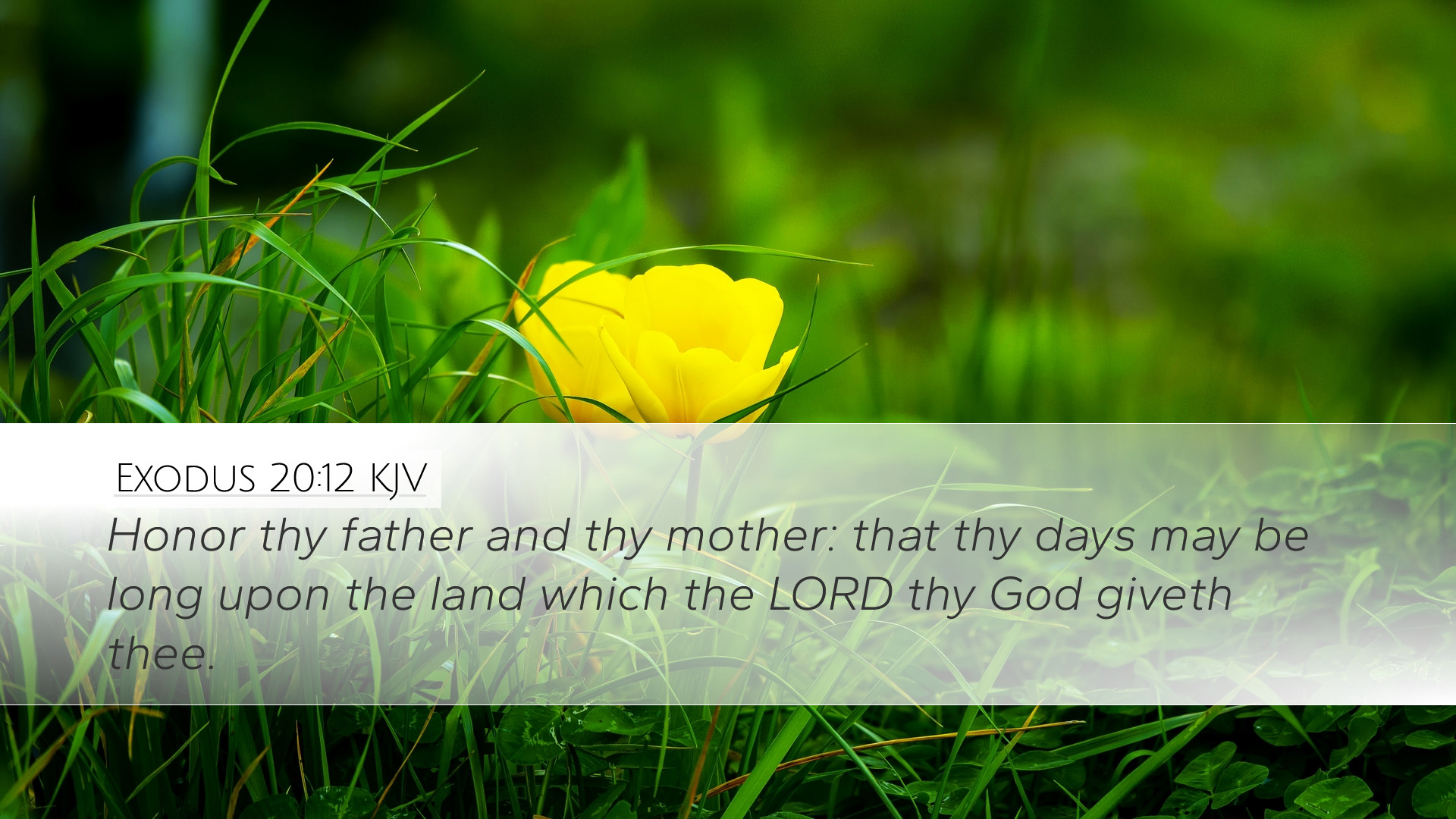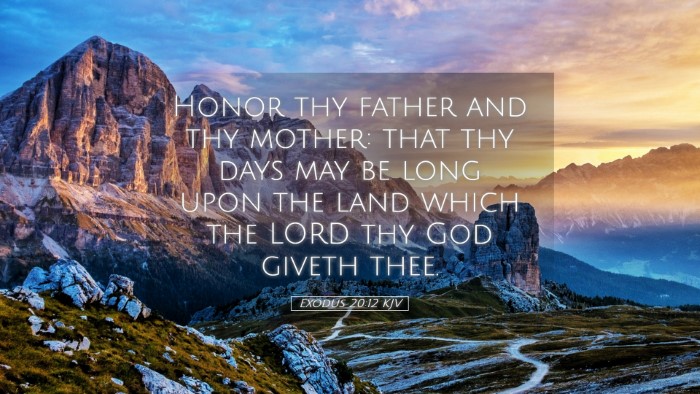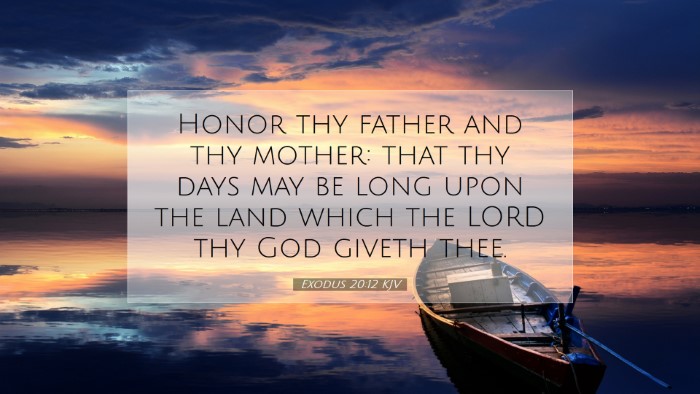Commentary on Exodus 20:12
Exodus 20:12: "Honor your father and your mother, that your days may be long upon the land which the LORD your God is giving you."
Introduction
This verse is foundational in the Decalogue, emphasizing the importance of family respect and the consequences of honoring one's parents. The commandment encapsulates a divine principle of societal structure and personal well-being.
Exegesis of the Verse
Honor: The Hebrew word for honor, "kabbed," implies weightiness and significance. To honor parents means to ascribe them worth, showing them respect and obedience, reflecting the weight of their authority and the sacrifices they have made.
Father and Mother: This dual emphasis calls for acknowledgment and respect towards both parents, ensuring the relational dynamics of love and submission within the family unit.
Days may be long: This clause implies a promise of longevity and prosperity linked to how one treats their parents. The biblical view sees this not only in a literal sense of lifespan but also in enjoying a fruitful and blessed life within the community.
Which the LORD your God is giving you: This underscores that the land is a gift from God, and proper familial conduct is part of maintaining a covenant relationship with Him. The promise of blessing is therefore tied to moral and ethical living.
Theological Implications
Exodus 20:12 serves as a reminder of the sanctity of the family unit in God's design for humanity. It illustrates God's concern for human relationships and societal stability achieved through respecting authority.
- Divine Order: Honor is not merely for social decorum but reflects divine order, where each member of the family has roles established by God Himself.
- Societal Impact: A society that honors parents is likely to foster healthy relationships, fostering peace and cooperation in the community.
Insights from Commentaries
Matthew Henry
Henry emphasizes the necessity of honoring parents as a fundamental virtue that extends beyond mere obedience to a heart of respect and love. He notes that parental authority is instituted by God and that dishonoring parents can lead to societal decay.
Albert Barnes
Barnes provides insight into the repercussions of this commandment, noting that success in life is impacted by our relationships with our parents. He remarks on the inherent blessings tied to honoring one’s parents, both in a physical sense of wellbeing and as a manifestation of spiritual fidelity to God.
Adam Clarke
Clarke expands on the cultural implications of this commandment, asserting that it establishes a foundation on which all other social relationships can flourish. He highlights how the promise of long life is not merely a reward for obedience but a divine principle whereby respect strengthens familial bonds.
Practical Applications
This commandment has enduring relevance in the modern context. Pastors and teachers can draw upon its principles to guide congregational teachings on family life.
- Encouragement of Family Unity: Churches should promote activities that foster respect and honor within families.
- Mentorship Programs: Encouraging the older generation to share wisdom with the youth can create pathways for honoring elders.
- Counseling: Providing resources and support for families facing challenges reflects the church’s commitment to uphold the sanctity of familial relationships.
Conclusion
Exodus 20:12 calls believers to prioritize familial respect, instilling values that reflect God's design for society. As we honor our parents, we not only fulfill a divine command but also lay a foundation for a thriving community. Reflection on this verse inspires a commitment to godly principles that transcend generations.


